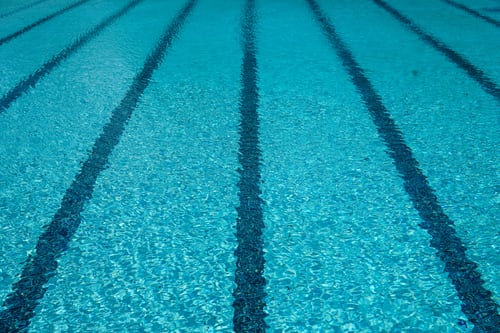
A saltwater swimming pool is quite a new concept and more and more people have started to see the benefits of having one in their backyard. For those who are not aware of the concept of a saltwater swimming pool, it is an alternative to a chlorinated swimming pool. A saltwater swimming pool has lesser salt compared to the ocean for sure, about 10 times lesser than the ocean. The typical level of salinity in a saltwater swimming pool is around 3000 parts per million (ppm). When we text ocean water for salinity, we get a result of 35,000 ppm. There are many reasons why people prefer this type of a pool as compared to a regular chlorinated pool being gentler in the people using the pool, saltwater pools are the next big thing when it comes to personal backyard swimming pools.
Advantages of a saltwater swimming pool
- A saltwater swimming pool is much easier to maintain.
- Saltwater swimming pools are gentler on the skin, eyes, and hair as compared to a chlorinated swimming pool.
- Such a pool makes the water softer and silkier to touch.
- It is quite cost-effective as compared to regular chlorinated swimming pools.
- Swimming in saltwater pools results in a calming effect on the nervous system as well as the immune system.
- It has anti-microbial properties.
- It can calm and soothe irritated skin.
- It gives you a little taste of the ocean right at home!
Weekly Salt Water Pool Maintenance
Just like any other swimming pool, a saltwater swimming pool also requires some amount of maintenance. We suggest that to maintain the best health of your saltwater swimming pool having a weekly pool maintenance regimen is the perfect solution. Each saltwater swimming pool is different, and you need to cater to the different needs individually. A little bit of trial and error will help you figure out the perfect weekly pool maintenance routine that works best for you and your swimming pool.
Additional Read: How To Test And Balance Your Swimming Pool Water?
- Ad chlorine
Even a saltwater swimming pool requires some amount of chlorine. While the level of chlorine is still quite less as compared to regular chlorinated swimming pools, a saltwater swimming pool must have a chlorine level of 1.0 to 3.0 ppm. Make sure that you do a chlorine test every week to maintain this level. You can easily check the chlorine level with a pool test kit. Shocking your pool when it is new is also a good idea. What it means is basically you give the pool a boost of chlorine initially and then let the generator do its thing and balance out the levels.
- Add a stabilizer
Adding a stabilizer or Cyanuric acid is a good idea as it will ensure that the chlorine is not destroyed because of the UV rays of the sun. adding a stabilizer becomes very essential especially in an outdoor swimming pool. A saltwater swimming pool will require a bit more stabilizer. The level of stabilizer or cyanuric acid should be within the range of 30 to 80 ppm. If the level is higher, then you can dilute the pool by adding fresh water
- Balance the pH of the pool
Make sure that the pH of the pool is slightly alkaline and falls within the range of 7.2 to 7.8. Adding a smart water care monitor allows you to observe the pH of your pool on a regular basis, or you can even conduct weekly tests with simple pool kits. You can lower the pH by adding hydrochloric acid or muriatic acid. You can increase the pH by adding soda ash or alkali calcium carbonate.
Maintain The Filter, Pump, And Skimmer
Once you have gotten into the flow and have figured how to conduct your weekly ritual to ensure that your saltwater swimming pool is thriving, then make sure you also start doing regular checkups of the pool hardware. If you are a novice and don’t know much about hardware, don’t worry! Just spending one day examining the inner workings of your pool equipment will be enough for you to understand how to clean and maintain them. It is extremely important that you keep the pump, the filter and the skimmer clean. If you fail to do so, then all the rubbish and debris will keep accumulating and ultimately make the flow of the water to the pool very weak.
Get a mechanical pool cleaner
If all these steps are too much for you to handle, there are some simple solutions out there, thanks to technology. A mechanical pool cleaner handles all the issues you would have to deal with otherwise. There are many different types of swimming pool cleaners like the suction pool cleaners, robotic pool cleaners, pressure pool cleaners and floating pool cleaners. It is a good idea to read up about each of these pool cleaning systems and then select one that is best suited to your needs.


